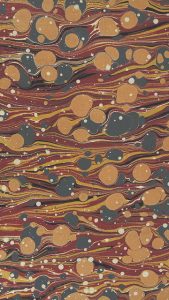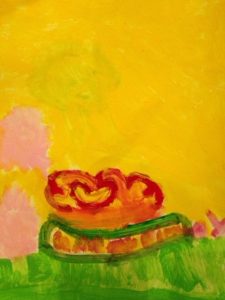Artistic Abuse
What is artistic abuse? Creative expression heals. Everyone has an inner artist. When we nurture the inner artist, we heal. Artistic Abuse (or Neglect) is communication (direct or indirect) that discourages, shames, or minimizes a person’s creative self-expression. Artistic abuse affects us emotionally, spiritually, and physically.
Art saves lives . . . or at least makes them worth living.
But lots of us say, “I’m not creative.” We don’t get our hands into the clay because we’ve never done that. We say, “I’m tone deaf,” so we never take piano lessons. We limit ourselves to activities that can be counted or checked. Why? A long time ago, someone mistreated our inner artist and we shut it down out of self-preservation.
We Need Art Like We Need Water
We so profoundly need art that shutting it down is like smoking or eating only hot dogs. When schools eliminate or downplay art and music, they send a message to children like, You don’t really need this . . . You can survive on hot dogs.
Julia Cameron writes extensively about how to recover from artistic wounding – and her work inspires me to think: children need their parents and teachers to feed them art. Children need their parents and teachers to value the artistic and give it a place of reverence in their lives.
So, as a parent or an adult child, allow yourself to go through the following list with an open mind. My novel, Wife Material, is all about coming to terms with artistic abuse. Only by looking at our past honestly can we revive our shut-down, wounded, inner artist.
You’ve probably been artistically abused or neglected if:
- Someone said, “You can’t sing (or write, or draw),” or, “You’ll never be very good.”
- Someone laughed at your early story-telling (not in a good way).
- You fear anyone seeing your paintings, reading your writing, or hearing your music.
- You feel intense shame about any artistic “failures.”
- You were told that art/music wasn’t a “real career.”
- You learned to view artistic expression as sinful, dangerous, or even selfish.
- You got punished for a disappointing performance.
- You got forced into artistic activities you didn’t want to do (I’m not talking about high school art class here).
- You felt exploited for an artistic talent (e.g., coerced to perform when you felt unsafe; used as a “show pony” to make someone else look good).
- Your artwork was intentionally destroyed or invaded by someone who knew (or should have known) you wanted to keep it safe and/or private.
- Someone ridiculed you for being artistic and suggested it made you less masculine.
- You learned to overvalue your business skills and mathematical ability and undervalue your poetry.
- You stop yourself from playing the piano because it feels like “a waste of time.”
- No one supported your learning a musical instrument in childhood – or your musical training was encouraged for a short time and then allowed to drop away.
- You were not taken to concerts or art museums. No one pointed out beautiful architecture or sound or literature.
- You stop yourself from reading fiction because it feels like “a waste of time.”
- Someone in authority ridiculed others (e.g., siblings, people on TV) who made music or expressed themselves artistically.
I’ll be back soon with steps you can take to recover from artistic abuse. For now, take a few minutes to journal about this. Then contact me if you’d like to explore further. I’d love to help you get started on your first work of art. Or read Wife Material to see if it inspires your own creative rebellion.
[dacta]
[dacta url=”http://www.amazon.com/Wife-Material-Novel-Misbehavior-Freedom-ebook/dp/B014VP2SXQ” text=”Read Wife Material”]


Like to Subscribe?
Get notified when Deborah shares new ideas, art, and creative health information for you.
You have Successfully Subscribed!
We respect your privacy. No information will be shared.